Chapter: Java The Complete Reference : The Java Library : java.util : The Collections Framework
The Collection Algorithms - java.util
The
Collection Algorithms
The Collections Framework
defines several algorithms that can be applied to collections and maps. These
algorithms are defined as static methods within the Collections class. They are summarized in Table 18-15. As explained
earlier, beginning with JDK 5 all of the algorithms were retrofitted for
generics.
Several of the methods can
throw a ClassCastException, which
occurs when an attempt is made to compare incompatible types, or an UnsupportedOperationException, which
occurs when an attempt is made to modify an unmodifiable collection. Other
exceptions are possible, depending on the method.
One thing to pay special
attention to is the set of checked
methods, such as checkedCollection( ),
which returns what the API documentation refers to as a “dynamically typesafe view” of a collection. This view is a
reference to the collection that monitors insertions into the collection for
type compatibility at run time. An attempt to insert an incompatible element
will cause a ClassCastException.
Using such a view is especially helpful during debugging because it ensures
that the collection always contains valid elements. Related methods include checkedSet( ), checkedList( ), checkedMap(
), and so on. They obtain a type-safe view for the indicated collection.
Notice that several methods, such as synchronizedList( ) and synchronizedSet( ), are used to obtain
synchronized (thread-safe) copies of
the various collections. As a general rule, the standard collections
implementations are not synchronized. You must use the synchronization
algorithms to provide synchronization. One other point: iterators to
synchronized collections must be used within synchronized blocks.
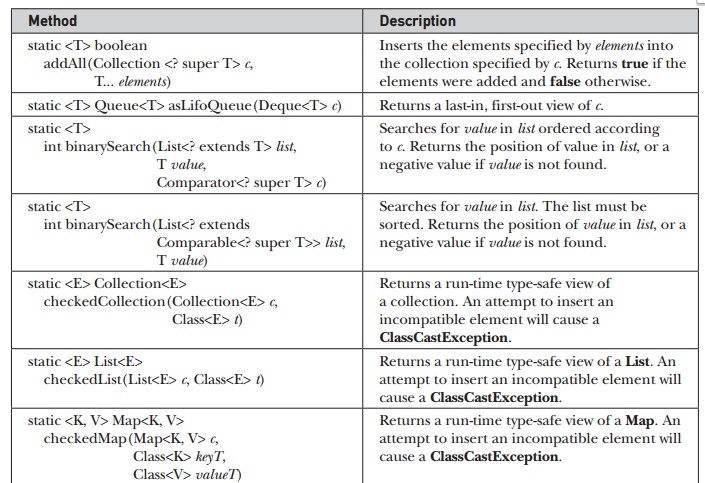
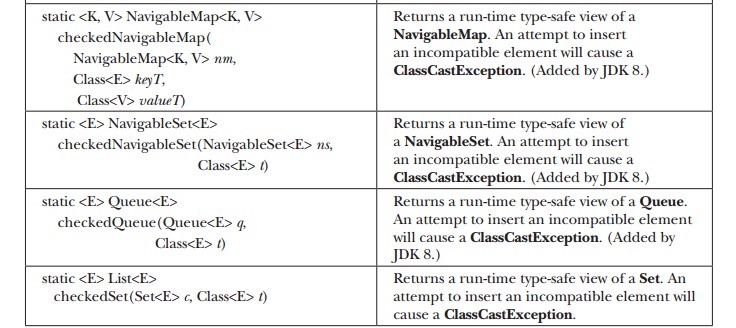
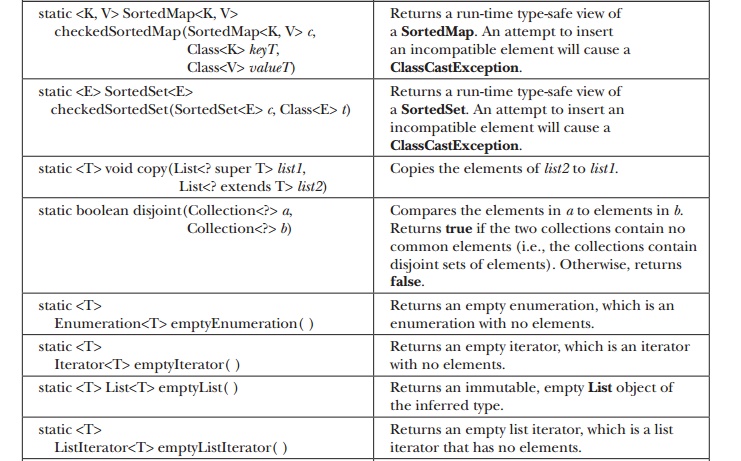
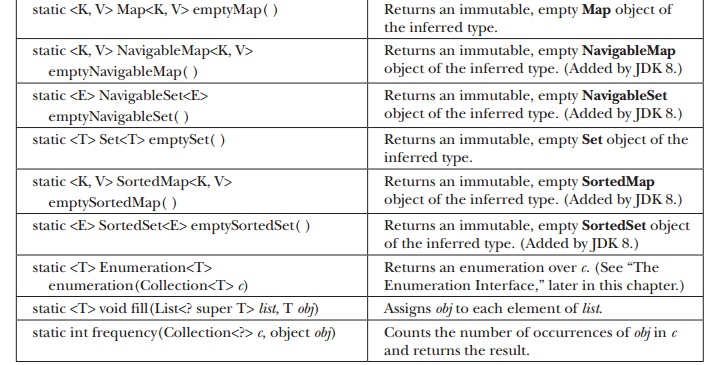
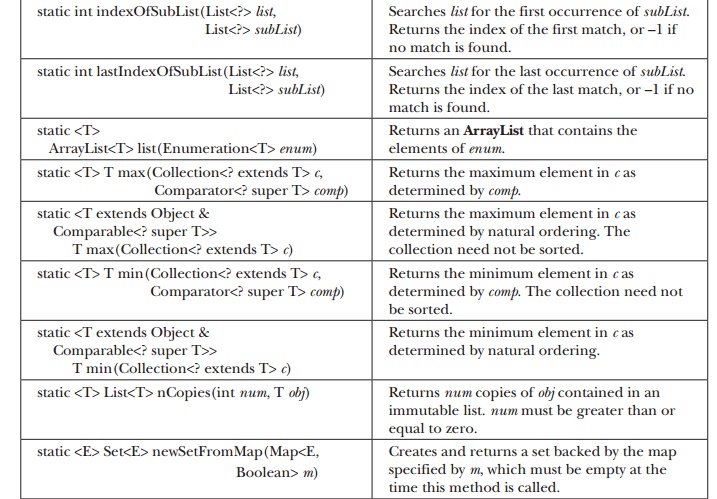
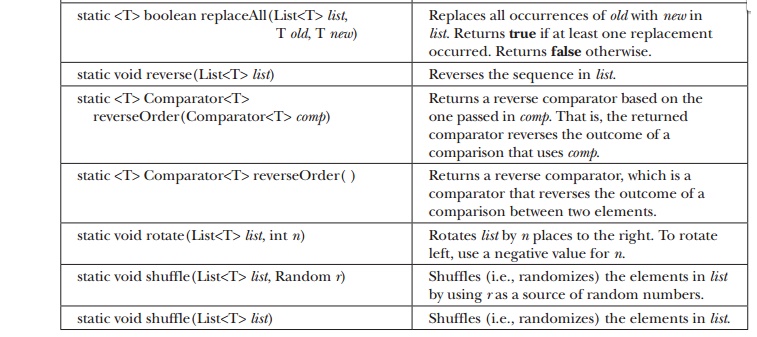
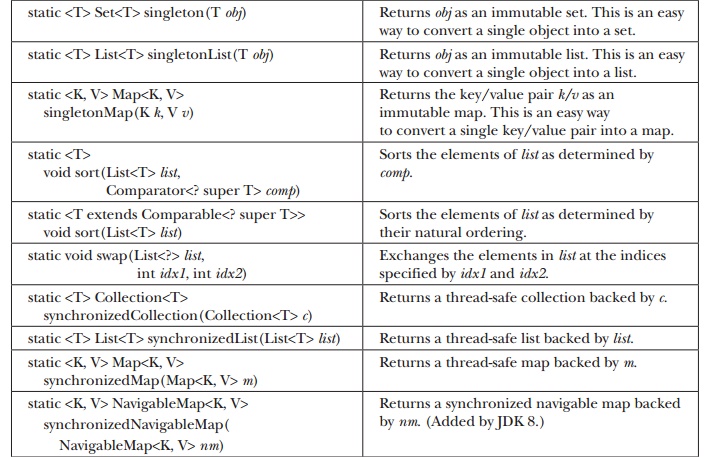
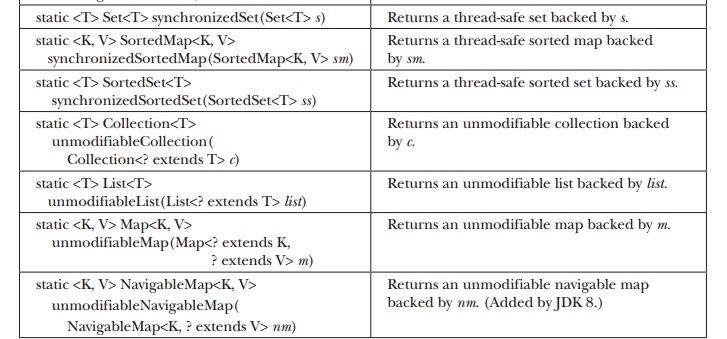
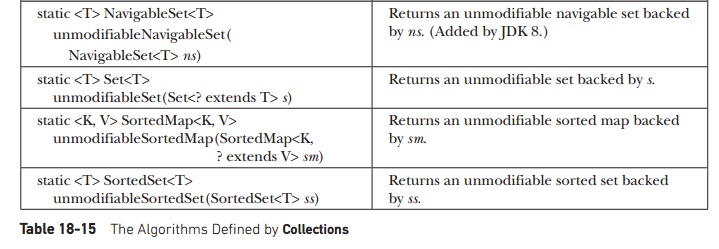
The set of methods that
begins with unmodifiable returns
views of the various collections that cannot be modified. These will be useful
when you want to grant some process read—but not write—capabilities on a
collection.
Collections defines three static variables:
EMPTY_SET, EMPTY_LIST, and EMPTY_MAP. All are immutable.
The following program demonstrates some of the
algorithms. It creates and initializes a linked list. The reverseOrder( ) method returns a Comparator that reverses the comparison of Integer objects. The list elements are sorted according to this
comparator and then are displayed. Next, the list is randomized by calling shuffle( ), and then its minimum and
maximum values are displayed.
// Demonstrate various algorithms. import
java.util.*;
class AlgorithmsDemo {
public static void main(String args[]) {
//Create and initialize linked list.
LinkedList<Integer> ll = new
LinkedList<Integer>(); ll.add(-8);
ll.add(20); ll.add(-20); ll.add(8);
//Create a reverse order comparator.
Comparator<Integer> r =
Collections.reverseOrder();
//Sort list by using the comparator.
Collections.sort(ll, r);
System.out.print("List sorted in reverse:
");
for(int i : ll)
System.out.print(i+ " ");
System.out.println();
//Shuffle list.
Collections.shuffle(ll);
//Display randomized list.
System.out.print("List shuffled: ");
for(int i : ll)
System.out.print(i + " ");
System.out.println();
System.out.println("Minimum: " +
Collections.min(ll));
System.out.println("Maximum: " +
Collections.max(ll));
}
}
Output from this program is
shown here:
List sorted in reverse: 20 8 -8 -20
List shuffled: 20 -20 8 -8
Minimum: -20
Maximum: 20
Notice that min( ) and max( ) operate on the list after it has been shuffled. Neither
requires a sorted list for its operation.
Related Topics